Transcription of POLITICAL DECENTRALIZATION IN AFRICA: EXPERIENCES …
1 1 POLITICAL DECENTRALIZATION IN africa : EXPERIENCES OF UGANDA, RWANDA, AND SOUTH africa Discussion Paper By John-Mary Kauzya Chief of Governance and Public Administration Branch Division for Public Administration and Development Management Department of Economic and Social Affairs United Nations New York December 2007 2 Abstract This paper looks at POLITICAL DECENTRALIZATION or devolution and
2 Attempts an assessment of how it has been designed, implemented and how successful it has been in achieving the intended objective of being an instrument of promoting participation of grass-roots people in decision-making. The paper specifies a working understanding of POLITICAL DECENTRALIZATION (devolution) and attempts to answer questions such as: (i) what are the practical reasons and objectives for devolution? (ii)Through what processes, modalities and mechanisms was devolution decided and agreed and how did such processes facilitate or constrain its implementation and success?
3 (iii)if devolution was intended to promote participation in decision making in local governments, what was introduced in designing decentralized governance, to institutionalize participatory decision making? (iv)Based on the objective of promoting participatory decision making in local governments what are some of the cases that illustrate that devolution so far has worked? The paper is based on the DECENTRALIZATION EXPERIENCES of Uganda, Rwanda, and South africa . Key words: Decentralized governance, devolution, POLITICAL DECENTRALIZATION , participation, participatory development planning, integrated development plans, community development committees.
4 POLITICAL DECENTRALIZATION IN africa : EXPERIENCES OF UGANDA, RWANDA, AND SOUTH africa 3 John-Mary Kauzya The mere fact of opting for DECENTRALIZATION shall not by itself ensure that the population effectively participates in its development which is the ultimate goal of a good policy of DECENTRALIZATION and good governance. It is important to set up mechanisms reassuring the participation of the 1 Introduction In terms of modern Public administration, historically African countries have experienced fused, personalized and at best highly centralized governance systems and practices.
5 In pre-colonial times kings or traditional leaders represented basically all authority. During the colonial and immediate post-colonial periods governance was structured and practiced in a highly centralized manner. During military dictatorships that in many countries replaced the immediate post-colonial governments governance was practically personalized. The search for inclusive, involving, and participatory governance has taken the path of DECENTRALIZATION .
6 POLITICAL and administrative reforms that have been going on in many countries in africa , especially since the 1990s, have sought to break with the past through DECENTRALIZATION of powers to lower local governments. Decentralized governance is increasingly being favored by many African countries as the most suitable mode of governance through which poverty reduction interventions can be conceived, planned, implemented, monitored and evaluated2.
7 Many hope that the process of DECENTRALIZATION will facilitate greater participation of communities in problem analysis, project identification, planning, implementation as well as oversight which in turn will increase ownership and the likelihood of sustainability of such initiatives. In the graph below Ndegwa shows the extent to which different African countries have decentralized their governance. Figure 1: Extent of DECENTRALIZATION in Africa3 The term DECENTRALIZATION embodies several concepts including devolution, deconcentration, delegation and delocalization4.
8 In many instances a DECENTRALIZATION policy that promises success will most likely include dozes of each of these. This paper 4however, will look at only POLITICAL DECENTRALIZATION or devolution and attempt an assessment of how it has been designed, implemented and how successful it has been in achieving the intended objective of being an instrument of promoting participation of grass-roots people in decision-making. The paper will specify a working understanding of POLITICAL DECENTRALIZATION (devolution) and attempt to answer questions such as the following: (i) what are the practical reasons and objectives for devolution?
9 (ii)Through what processes, modalities and mechanisms was devolution decided and agreed and how did such processes facilitate or constrain its implementation and success? (iii)if devolution was intended to promote participation in decision making in local governments, what was introduced in designing decentralized governance, to institutionalize participatory decision making? (iv)Based on the objective of promoting participatory decision making in local governments what are some of the cases that illustrate that devolution so far has worked?
10 The paper will be based on the DECENTRALIZATION EXPERIENCES of Uganda, Rwanda, and South africa . Working Understanding of POLITICAL DECENTRALIZATION (Devolution) POLITICAL DECENTRALIZATION can be understood to refer to either or both of the following: (i)Transferring the power of selecting POLITICAL leadership and representatives from central governments to local governments, and (ii) Transferring the power and authority for making socio-politico-economic decisions from central governments to local governments and communities.
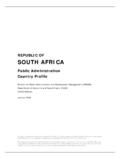

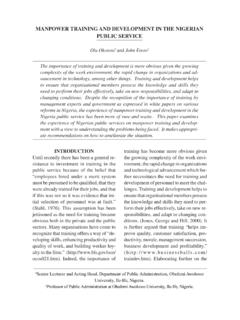
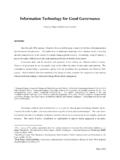
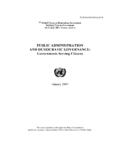
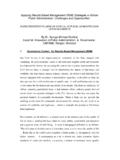

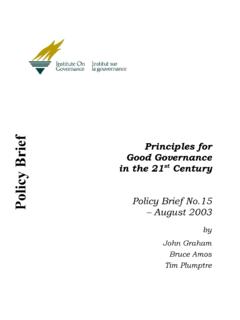
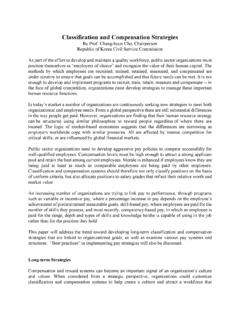






![arXiv:1511.05952v4 [cs.LG] 25 Feb 2016](/cache/preview/9/e/0/8/7/8/5/c/thumb-9e08785c0efa5f8d4f15f7f8dda28993.jpg)
